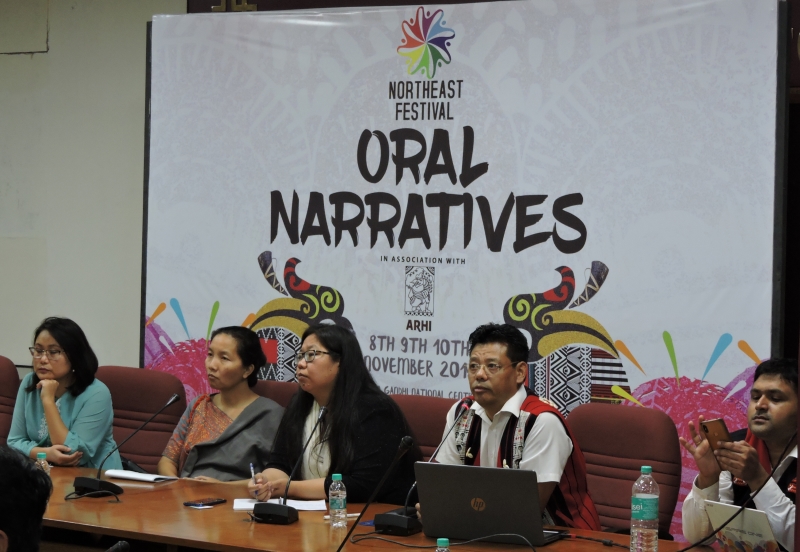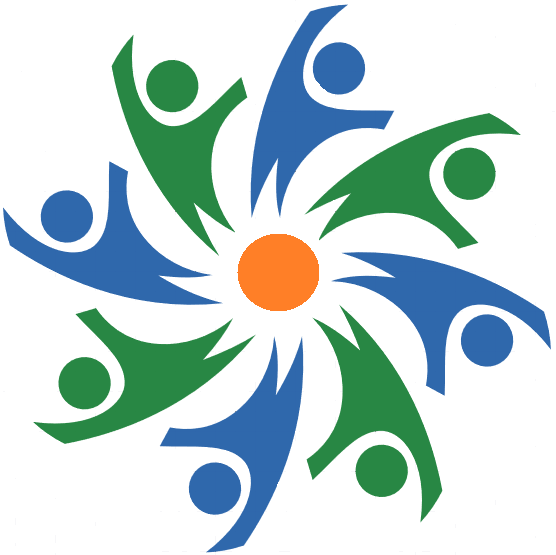
A three-day long North-east Festival took place in New Delhi at the Indira Gandhi National Centre for the Arts (IGNCA) from 8th to 10th November 2019. The festival focused on celebrating the diversity of North-east India, particularly the linguistic diversity.
Chimoitim Phairong, who is working as Green Youth Fellow with Delhi Greens and is researching on the linguistic diversity of Manipur participate in the Festival and also attended the Panel Discussion on Oral Narratives and the challenges therein.
The following report has been submitted by Chimoitim Phairong on the deliberations of the Panel Discussion.
The Panel Discussion on Oral Narratives highlighted the linguistic diversity of North-east India. The first speaker discussed the loss of language in translation with a case study of Ao language as his topic. In Ao language, we see different words or phrases for the word wash. There are different words for washing hand, washing feet, washing clothes, etc. However, when we translate this in English, we get only wash for its translation. He termed this not just as ‘loss in translation’ but also ‘loss in cultural translation’.
In the North-east, there are different words or names for a particular type of act, by a particular type of group or clan or status. And we even have different names for objects with regards to its usage. For instance, the speaker took the example of wrap-around mekhala, and the different name it takes which are hard to translate into English.
The second speaker focused on language of the Karbi’s of the Karbi Anglong and showed how people are reckless about using it. She showed quite an ample number of books written about Karbi and it’s language, grammar etc. by English researchers. But Karbi, one of the largest speaking language in Assam, is still not recognised as a State language. She mentioned how a lots of books are published and there are also lots of young energetic writers. But Karbi language is not promoted or became famous because of lack of guidelines, or support from the leadership. Now, Karbi has become one of the language in danger as announced by UNESCO in 2009.
The second speaker also mentions about the strong hegemony, and that our languages are so diverse that in one single sentence, we are mixing up many languages but this is not being realised by the people. Words are being replaced by non-native languages. She also mentions about a Karbi oral writer Kacharhe Alum which is twice the length of Homer’s.
The next speaker brought forward the realm of myth, folklore, legends etc. and how these are becoming irrelevant. And how much we see the similarity and diversity in different cultures. Most of the stories like the story of seven brothers, story of a tiger man are found across Asia but there is differentiation in the terms that are used based on the difference in cultural attitude.
The fourth speaker emphasized on the need to develop an independent theory to research in the North-east as tribals are unique and different. When we put Western theories, we got confused and most of the meaningful learning are left out. He also talks about official language and its definition, and highlighted that every dialect must be promoted and not just the official languages. In fact, the way the official languages are defined, it is a threat and a cause of concern and the reason for loss of many minor language. We must transitionalise our understanding of languages and promote all languages and dialects through communication was the general consensus.

Being an adventurous person I have always had a weakness for the beautiful hills of the Northeast and the beautiful people of Assam and its neighboring States.